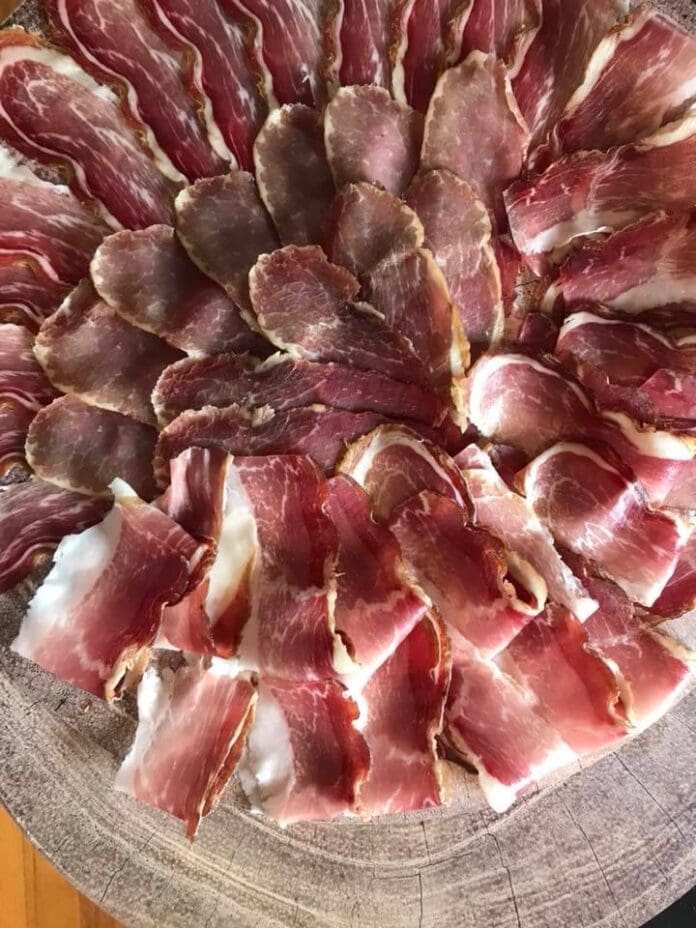Croatia, with its long history of food traditions, is renowned for its prosciutto, known locally as pršut. This dry-cured ham, made from carefully selected pork legs and seasoned with only the finest local ingredients, has become an integral part of Croatian culinary culture. Whether it’s served as a snack on a platter, paired with cheese and olives, or eaten simply with bread, Croatian prosciutto is a delicacy that captures the essence of the country’s regions. In this article, we’ll explore the distinct types of prosciutto produced across Croatia, many of which are protected by geographical indications (PGI), highlighting the region’s commitment to preserving its culinary heritage.
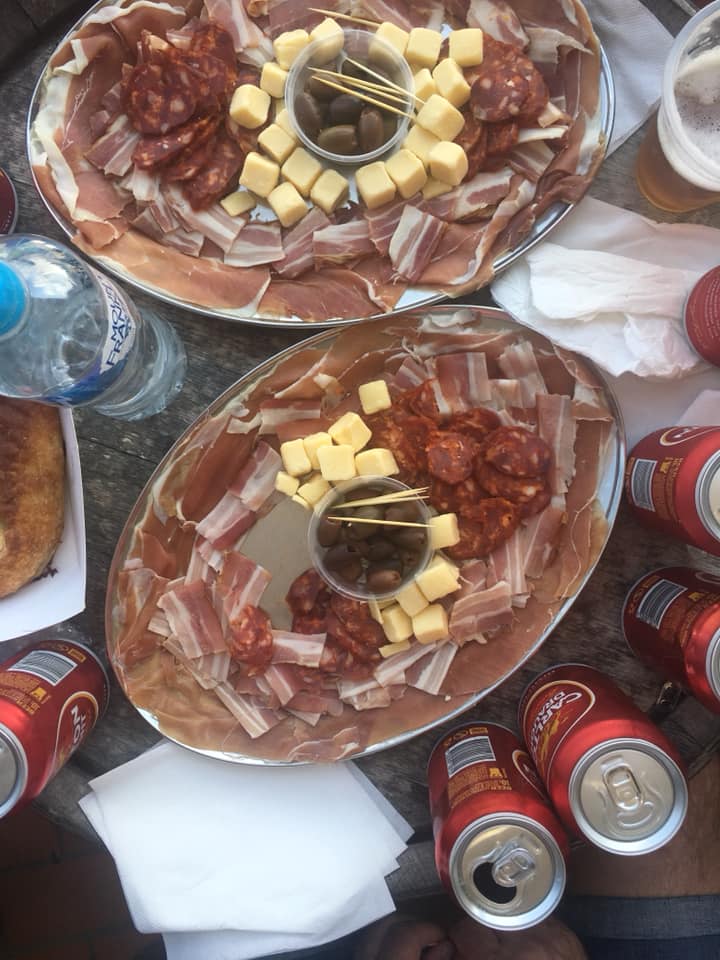
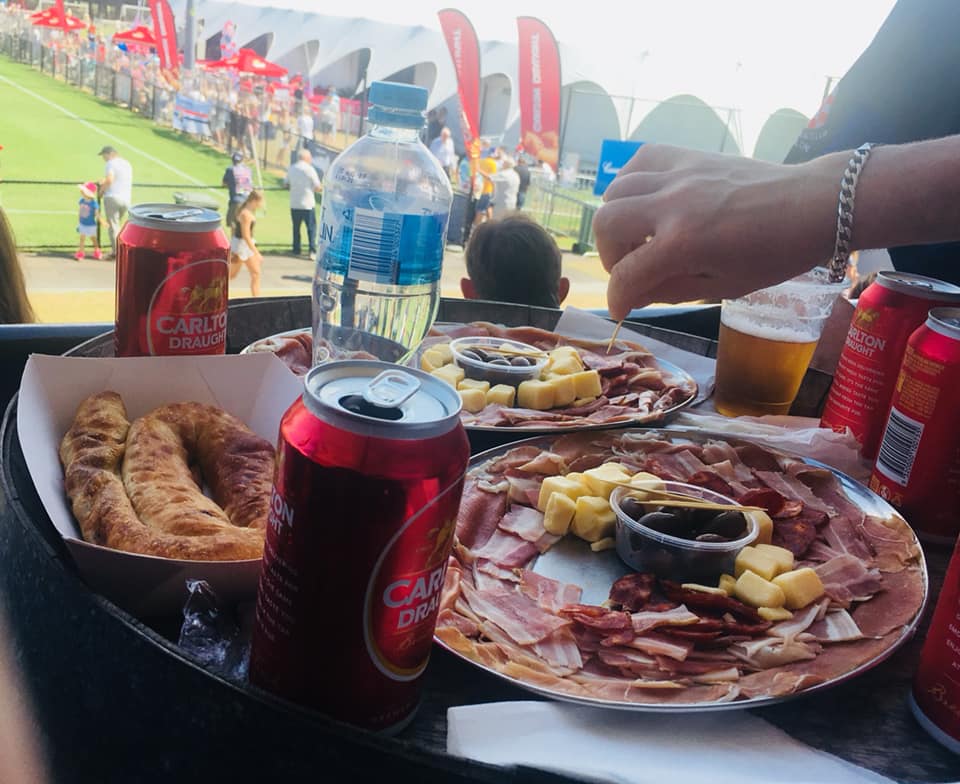
Dalmatian Prosciutto: A Protected Tradition
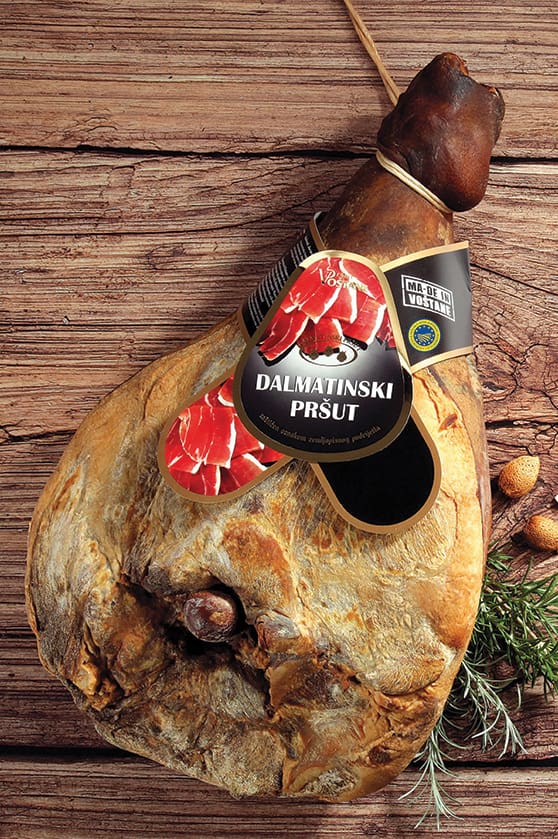
Dalmatian prosciutto, or dalmatinska pršuta, stands as one of the most iconic Croatian cured meats. Hailing from the coastal Dalmatia region, it’s distinguished by its unique production process, which blends quality pork, sea salt, the local bora wind, and a secret family recipe that’s been passed down through generations. This combination of natural elements results in a prosciutto with a distinctive aroma and flavor that locals hold dear.
In 2012, Dalmatian prosciutto received the prestigious Mark of Geographical Indication (GI) from the Croatian Ministry of Agriculture, ensuring that only prosciutto produced within the region and following specific guidelines can carry the name. The protected status helps maintain the integrity and quality of this artisanal product. To learn more about the production specifications, visit the official document here: Dalmatian Prosciutto Specification: https://www.prsut-vostane.hr/eng/specifikacija-dalmatinski-prsut.pdf
Istrian Prosciutto: A Taste of Heritage
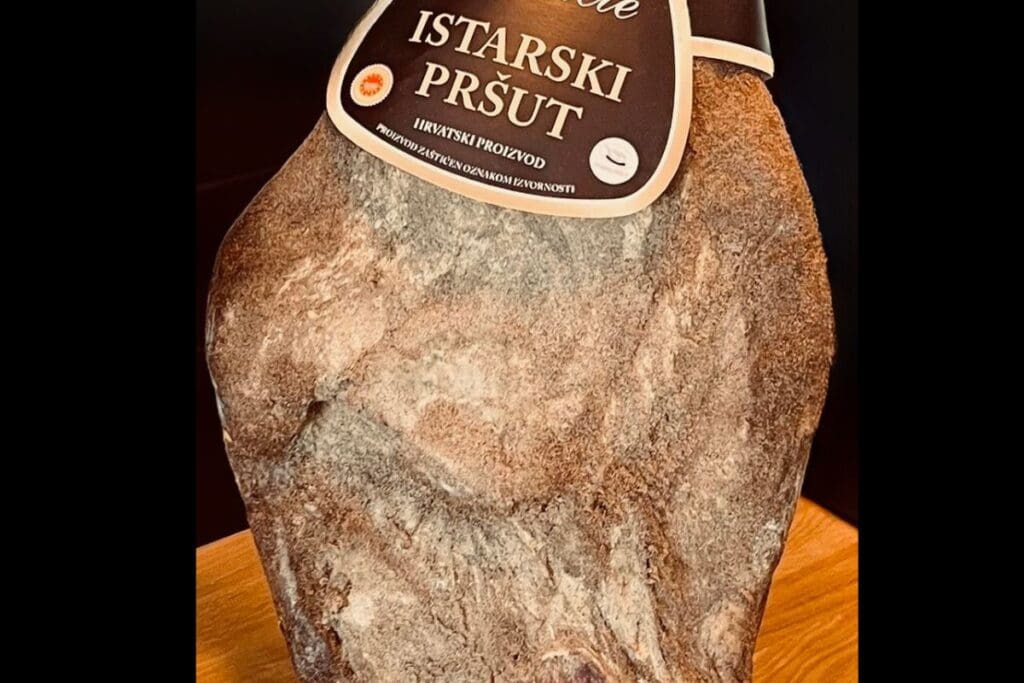
Moving north to the Istria region, Istarski pršut stands out for its historical roots. The first reference to this prized ham dates back to 1580 when it was listed as a wedding dish in an inland Istrian town. The Istrian variety is typically made from local pig breeds, such as krškopolje, and has a unique pinkish-red color, a fragrant aroma, and a lightly salty flavor.
Istrian prosciutto is cured using a blend of sea salt, garlic, pepper, bay leaves, and rosemary. After curing for a month, it is left to air-dry for up to a year, with the region’s bora wind playing a key role in the drying process. The pigs are traditionally raised in the Istrian countryside, feeding on alfalfa, clover, pumpkins, and other local produce, which enhances the distinctiveness of the final product.
The combination of artisanal techniques and regional ingredients makes Istrian prosciutto a sought-after delicacy. Its centuries-old production methods have earned it recognition on both national and international levels, continuing a culinary tradition that has been refined over generations. Visit Memo SI for more information on this beloved product.https://memon.si/en/lands-of-prosciutto/
Drniški Pršut: A Royal Delight
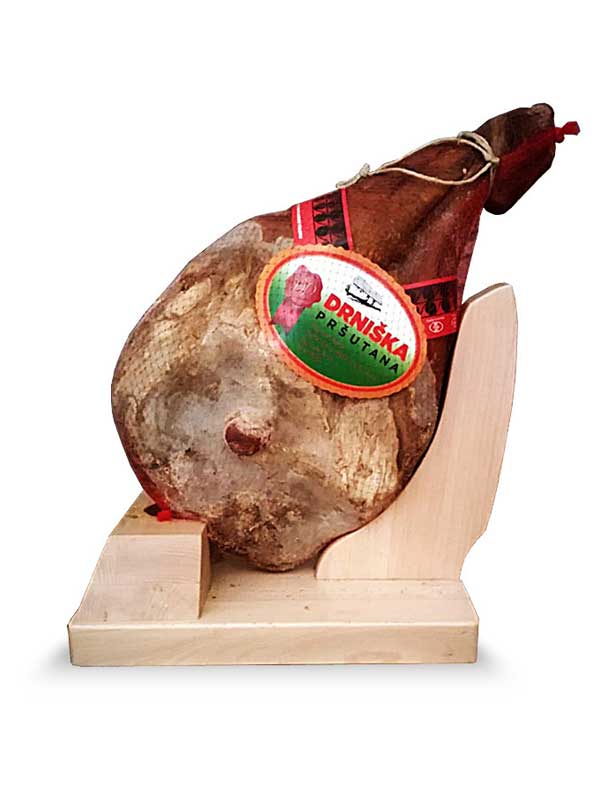
Hailing from the area around the town of Drniš in central Dalmatia, Drniški pršut has long been regarded as one of Croatia’s finest prosciuttos. The sub-Mediterranean microclimate surrounding Drniš gives this prosciutto its unique qualities. Its reputation has been solidified over the centuries, once gracing the tables of the Austro-Hungarian court and even served during the coronation of Queen Elizabeth II.
The production of Drniški pršut is a meticulous process. Fresh pork legs are cured with Adriatic sea salt, pressed, cold-smoked, and left to dry and age for at least 12 months in the region’s specific climatic conditions. This process imbues the ham with rich flavors and makes it a true representation of Croatian craftsmanship. In recent years, Drniški pršut has earned a Protected Geographical Indication (PGI), further protecting its heritage and ensuring its authenticity.
Discover more about this exceptional prosciutto on the official website of the Drniški Pršut producers: Drniški Pršut.https://drniska-prsutana.hr/proizvodi/drniski-prsut
Krčki Pršut: From the Island of Krk
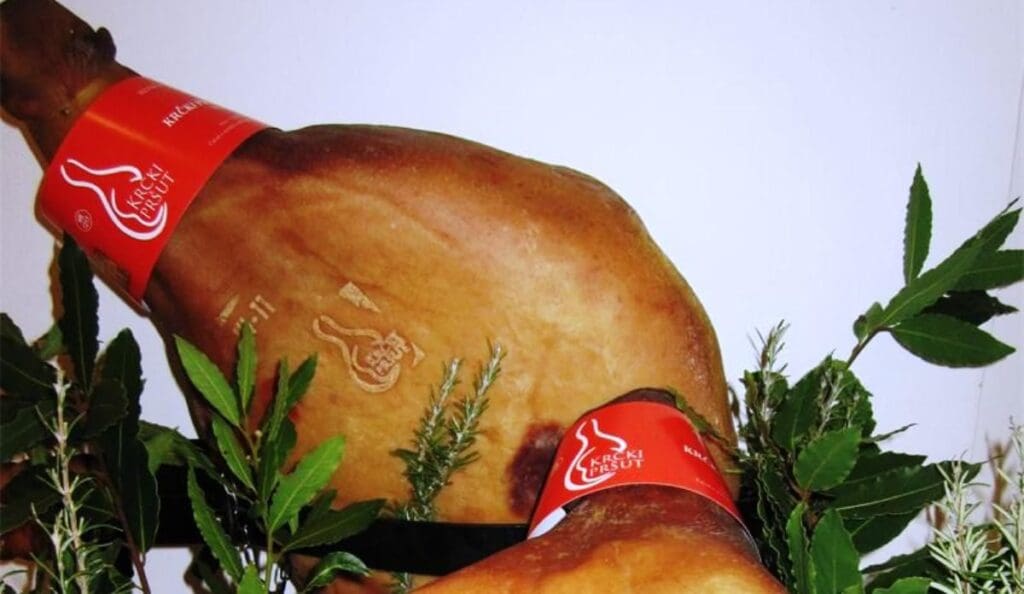
Krčki pršut, a dry-cured ham from the island of Krk in the northern Adriatic, is another gem in Croatia’s prosciutto portfolio. Unlike its counterparts from Dalmatia and Istria, Krčki pršut is not smoked but rather air-dried using the region’s natural winds, making it a unique product in its own right. The process of curing and drying takes at least one year, and the result is a dense, flavorful ham with a deep, complex taste.
The uniqueness of Krčki pršut lies in its location and the traditional methods used to make it. The island’s specific conditions and long-standing local expertise in meat curing ensure that this prosciutto remains a highly respected product. In 2015, Krčki pršut received the Protected Geographical Indication (PGI) mark, making it the first Croatian product to be officially registered and protected on the EU level. Read more about this distinctive prosciutto here: Krčki Pršut.https://hrvatskiprsut.com/?p=608
Posedarski Pršut: The Taste of Tradition
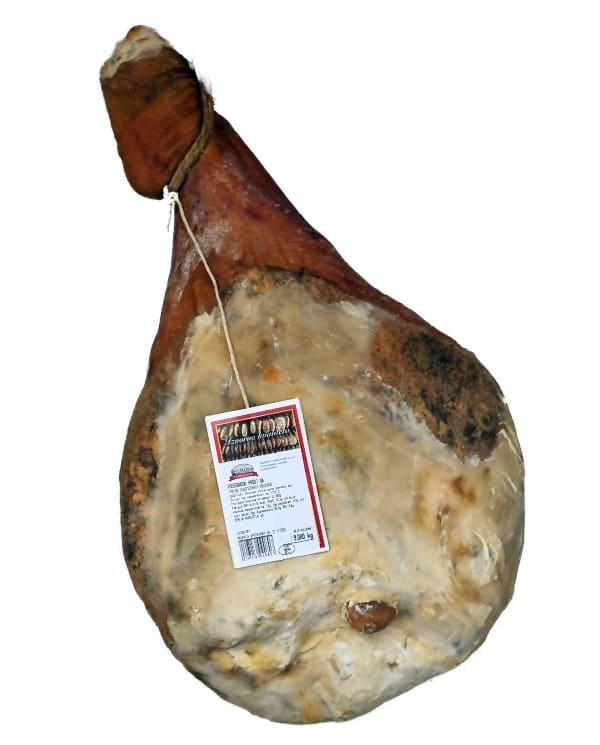
Finally, Posedarski pršut, a variety of Dalmatian prosciutto from the village of Posedarje near Zadar, brings a unique twist to the prosciutto tradition. Made using only four key ingredients—sea salt, the bora wind, cold smoke, and handcraft—this prosciutto has been recognized for its exceptional quality. The process of making Posedarski pršut follows traditional methods, with each piece of meat being carefully cured, pressed, and smoked before being aged for at least 12 months.
This artisanal product is celebrated for its distinct flavor, which comes from the drying process on the strong winds of the Velebit mountain range. Over the years, Posedarski pršut has earned multiple awards in international competitions and, more recently, the prestigious Izvorno hrvatsko (Original Croatian) label, further solidifying its place in Croatian gastronomic history.
A Taste of Croatia in Every Slice
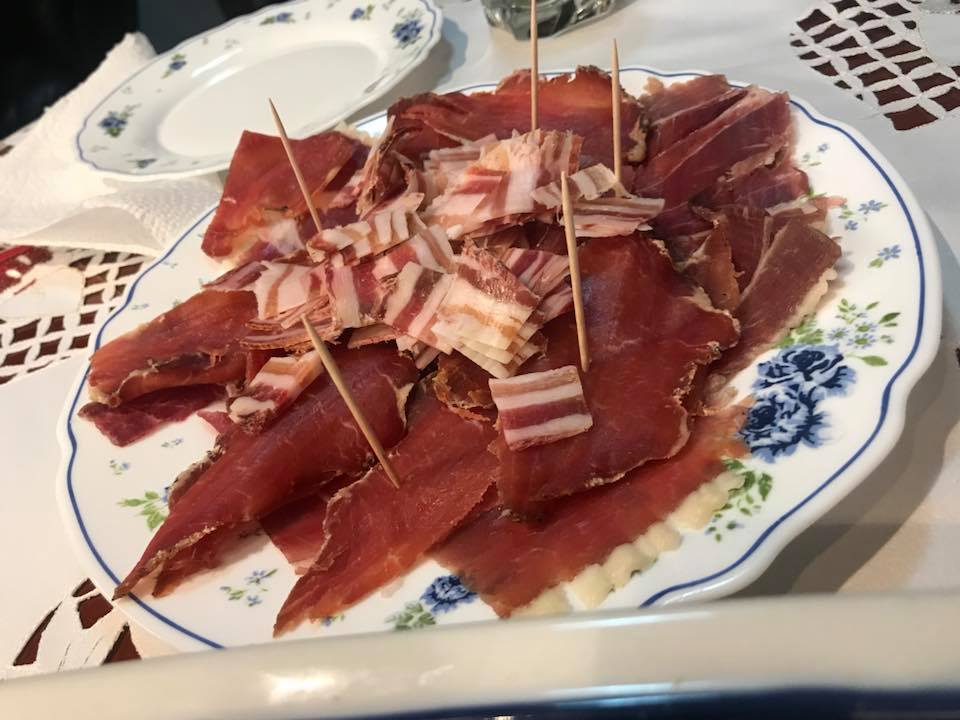
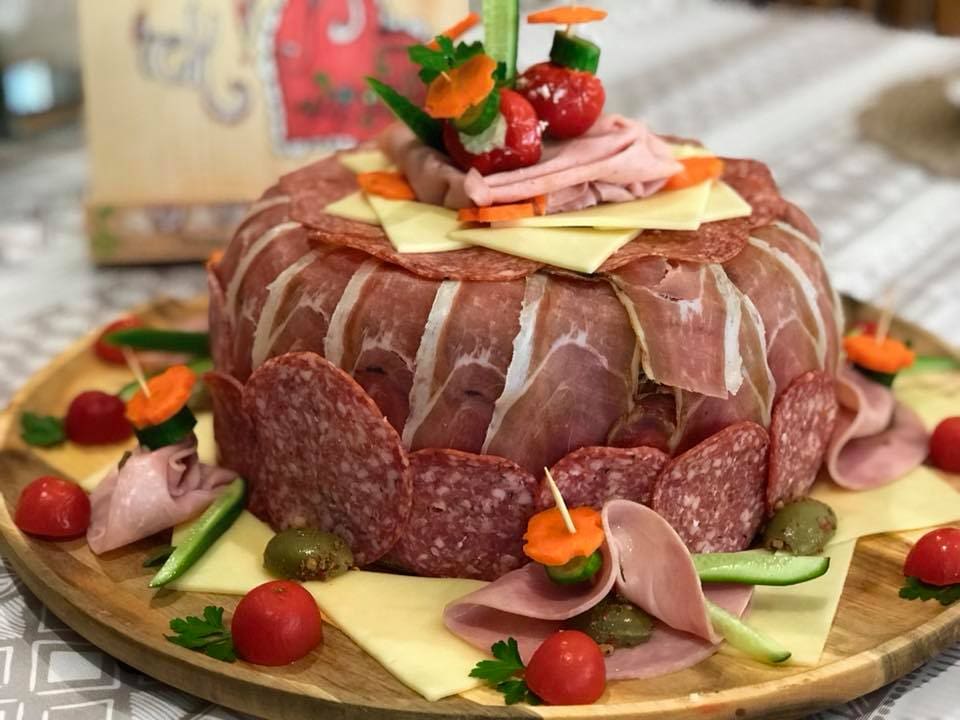
Whether it’s the salty richness of Dalmatian prosciutto, the aromatic depth of Istrian ham, or the royal history of Drniški pršut, each type of Croatian prosciutto tells a story of tradition, local ingredients, and craftsmanship.
The country’s efforts to protect and promote these products through geographical indications ensure that future generations will continue to enjoy the authentic tastes of Croatia.
So, the next time you’re savoring a slice of Croatian prosciutto, remember that you’re not just tasting a piece of cured meat. You are experiencing centuries of tradition, heritage, and passion in every bite.
This exploration of Croatia’s renowned prosciuttos showcases the diversity and quality of the country’s cured meats, each with its own unique characteristics tied to its regional origins. From Dalmatian shores to the island of Krk, Croatian prosciuttos continue to be a true symbol of the country’s rich gastronomic heritage.
Australian Croatian Club O’Connor: Pršut Making Master Class – July
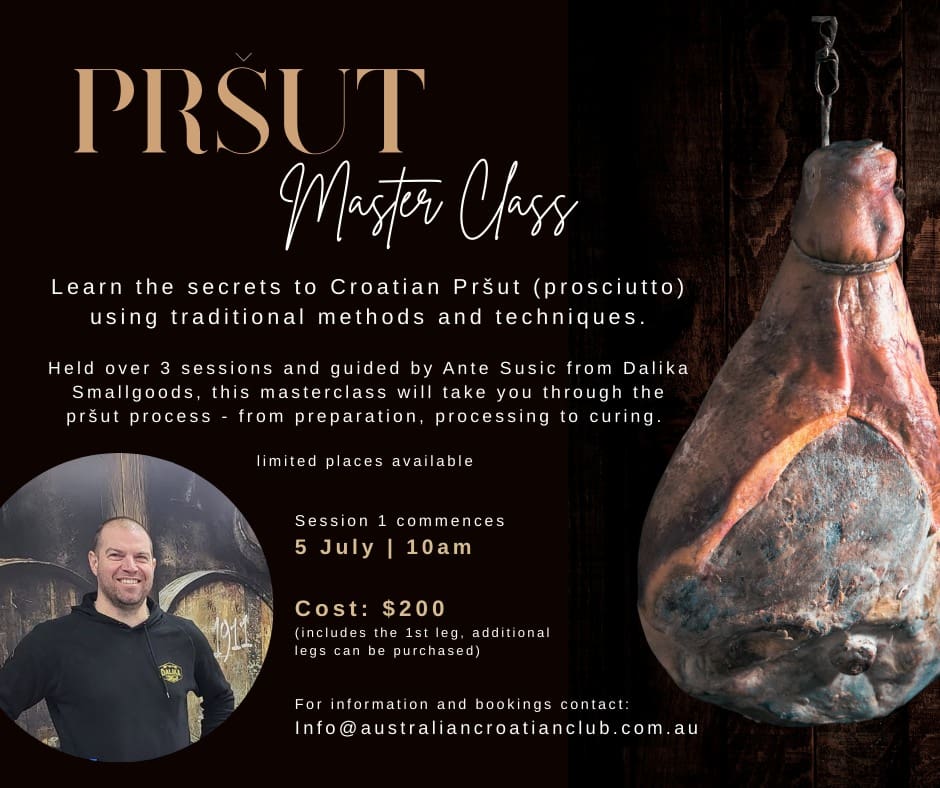
If you’ve ever dreamed of creating your own traditional Croatian pršut (prosciutto), now is your chance.
The Australian Croatian Club O’Connor is hosting an exclusive Pršut Making Master Class this July, where you can learn to produce your very own handmade Croatian prosciutto using authentic, time-honoured techniques.
In this hands-on master class, our expert instructors will guide you through the entire process—starting with selecting and preparing the meat, blending recipes, and safely processing it for curing.
You’ll gain an in-depth understanding of the methods passed down by our ancestors for generations, ensuring your pršut is crafted to perfection.
Details:
• Date: July (Exact Date TBA – session 1 commences 5 July, 10am)
• Cost: $200 (Includes GST, 1st leg of prosciutto; additional legs available for purchase)
• Location: Australian Croatian Club O’Connor
• Email for inquiries: Info@australiancroatianclub.com.au
Spaces are limited, so be sure to reach out if you’re ready to embark on this delicious journey into Croatian culinary tradition!
Don’t miss out on this unique opportunity to create your very own pršut—a true taste of Croatia—right here in Australia!
For more details, visit: Australian Croatian Club O’Connor Facebook: https://www.facebook.com/australiancroatiancluboconnor

